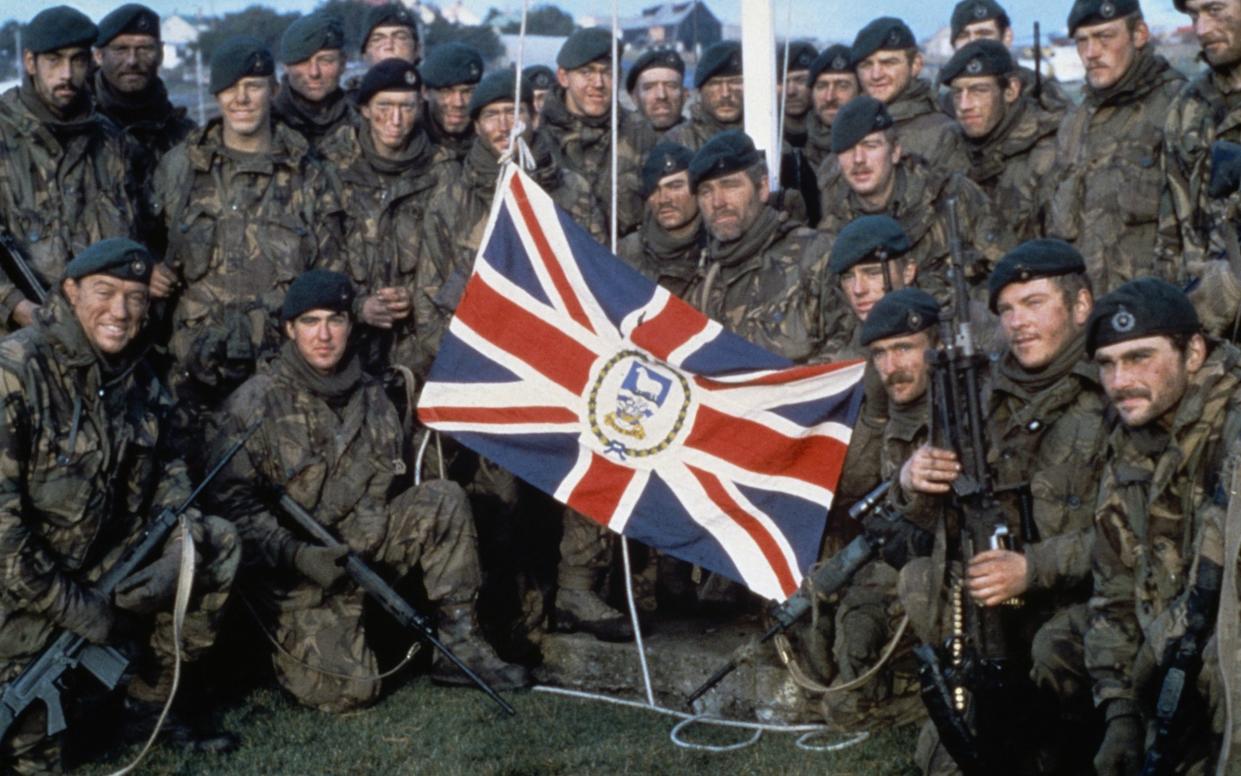Argentina claims diplomatic ‘triumph’ over the Falklands

Argentina has claimed a diplomatic “triumph” after the EU agreed to refer to the Falklands as the Malvinas in an official document.
The move was signed off by European Union leaders when they met with the Celac group of Latin American and Caribbean leaders in Brussels.
James Cleverly, the Foreign Secretary, had asked Brussels to reject any mention of the Falkland Islands in the declaration ahead of the summit.
But EU officials said Britain would not be allowed any say in the matter, since it is no longer a member of the bloc.
The agreed declaration read: “Regarding the question of sovereignty over the Islas Malvinas/Falkland Islands, the European Union took note of Celac’s historical position based on the importance of dialogue and respect for international law in the peaceful solution of disputes.”
‘This is outrageous’
James Sunderland, a Tory MP who did a tour in the Falklands after the war, said: “This is outrageous. The UK has exercised de facto sovereignty over the Falkland Islands since 1833 and went to their defence in 1982.
“The good people of the Falklands have also overwhelmingly voted to remain British. The EU would be wise to respect British sovereignty, rather than waste its time with tokenism.”
The statement was endorsed by all 27 EU member states and 32 of the 33 Celac countries, with Nicaragua refusing to back it because of the language on the war in Ukraine.
Argentina said it was the first time Brussels had officially recognised Latin America’s claim over the Falkland Islands in a joint declaration.
Santiago Cafiero, Argentina’s foreign minister, said Buenos Aires expected to “deepen dialogue with the European Union in relation to the question of the Malvinas Islands” following the pronouncement.
“This joint declaration represents a new call from the international community to the United Kingdom to agree to comply with its obligation to resume sovereignty negotiations with Argentina,” he said.
But a figure close to Mr Cleverly said: “The Argentine government can lobby whoever they wish but it doesn’t change the fact that the Falkland Islands are British.
“That is the clear will of the Falkland Islanders. Ten years ago, 99.8 per cent of Falkland Islanders who voted said they wanted to stay a part of the UK family.
British officials are relaxed over the statement because it does not oblige or promise any change in policy from Brussels over the Falklands.
A spokesman for the European External Action Service, the EU’s foreign affairs arm, said the bloc endorsed the statement in a “spirit” that displayed it is “ready to listen to the position of our partners”.
He added: “The EU member states have not changed their views/positions concerning the Falklands/Malvinas Islands.
“The EU is not in a situation to express any position on the Falklands/Islas Malvinas, as there is not any Council discussion on this matter.
“The EU does not take any position on such matters without a Council mandate.”
Shailesh Vara, a former Cabinet minister who sits on the Falklands Islands All-Party Parliamentary Group, said: “The EU doesn’t speak for the UK on these matters and nothing changes the fact that the Falkland Islands remain British, which is what 99.8 per cent of the Falkland Islanders want.”
Known as the Malvinas in Spanish, the UK-ruled islands were the subject of a short but brutal war after Argentina invaded in 1982
Britain and Argentina last year marked the 40th anniversary of the conflict, which claimed the lives of 649 Argentinian soldiers, 255 British servicemen, and three women who lived on the island.

 Yahoo News
Yahoo News 
